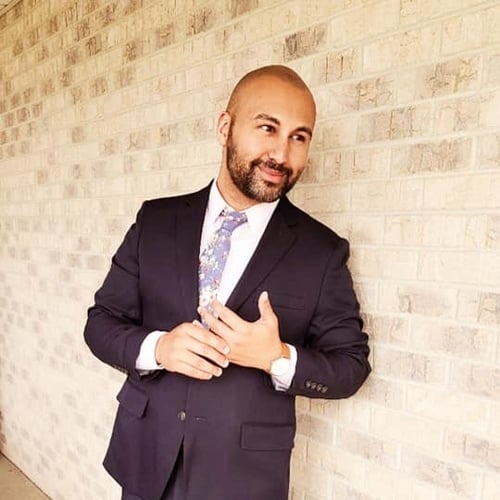-

School Administrator
Plato Learning Academy
My Story
I have, what I feel to be, a unique perspective. I was raised white. My grandparents are of European descent with my grandfather being a first generation U.S. born citizen. Despite my very different skin color, I was raised within a culture that did not acknowledge my African-American heritage. It was not until I was much older that I started that journey and, to be honest, continue today. I am still unpacking my long-held beliefs and understandings and continuing to make connections of reality and my experiences. To me, one of the issues with equity work is empathy and being able to truly understand what someone else thinks, believes, and has experienced. I am in a unique position to simultaneously navigate two very different worlds and thus bridge many of those gaps and misunderstandings.
Why I choose to engage in equity work
I didn't fit in as a kid. I had friends but I did not have a group. A cohort. I was not black enough nor was I white enough. I was athletic but I was also an academic nerd who loved theatre. I was my own person and quickly learned to navigate the nuances of various social settings. This allowed me to blend in and associate but never permitted me a permanent space. While this allowed me to avoid some of the more direct and harsh treatment that my peers experienced, I was also left to my own to learn and grow.
My equity work ensures that all students feel like they belong. That the systems and structures in place do not, intentionally or not, prevent students from expressing themselves and having avenues to do self-exploration.
As an example, I faced harsh opposition when we welcomed Resilience into our schools to work with our students. Some critics pointed out that they were promoting a "gay" agenda and were worried that such topics of conversation would convert students. I pushed back with the observations that many of our students were already displaying these signs and that we do not pick and choose to whom we will provide a safe environment. We should not love our students conditionally.
My equity challenge and how I work on it
As I mentioned earlier, my experiences and thus openness to all things "different" does not vibe well in certain communities or with individuals from more traditional backgrounds. Instead of developing environments filled with hostility and tension, I strive to serve as a role model and create spaces where all feel as if their voices are heard.
When CPS starting work on gender identity, it upset a lot of people. Instead of simply presenting mandates, I developed opportunities to engage in meaningful dialogue so that staff could express questions and concerns. I provided access to experts that could provide additional insights and share real-world techniques for addressing these shifts in schools. While it was clear what direction I was taking the school, I wanted to be sure that we were all on the same page before moving forward.
What sustains me when equity work stalls, how do I stay motivated when the work gets hard, and how do I push myself and others to advance equity
I have affiliated myself with several working groups that help to provide me a renewed sense of vitality. This work is not only challenging but is also often lonely. Meeting with these groups allows me to remember the importance of the work that I am doing, gain new ideas and insights, and commune in fellowship with like minded individuals.
One of the biggest threats to equity is complacency. While we seem to have made progress, it is important to examine if the successes are genuine or simply tokens. Are they meaningful or superficial? We cannot become accepting of platitudes without real change.
